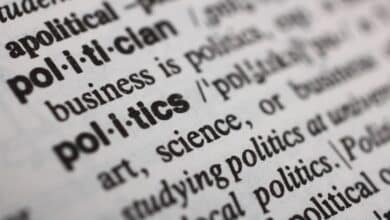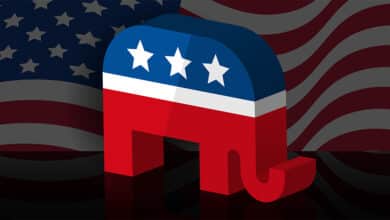The 92ndArkansas General Assembly has just three weeks to go and things have hit a fever pitch. Even with a shortened week due to Spring Break, the legislature heard some of the most controversial and biggest ticket items of the session last week. SB571would dramatically increase the tax on cigarettes and create a new tax on vaping. That bill squeaked out of the full Senate with 18 votes, the minimum necessary to pass the chamber. That legislation creates a new welfare check program (EITC) to grow with increased cigarette taxes. The bill would increase the standard deduction and cut the lowest income tax bracket. Overall, the bill would hurt small businesses, working families, and increase dependency on government.
The Internet Tax 2.0 was included in a corporate tax reform bill that is now on the floor of the Arkansas Senate. That bill includes a revised internet sales tax that goes even further than attempts last session or upheld in the Wayfair vs. South Dakota Supreme Court case. It will grow government at that state, county, and city level with less money in the pockets of Arkansans and more money in the government coffers.
A good bill that would increase the sales tax exemption on used cars, making them more affordable for working families, passed out of the House and heads to the Senate Revenue and Tax committee.
Legislation to help small businesses, nonprofits, and students under the new minimum wage law has stalled on the House floor. The bill has drawn opposition from the Governor, Asa Hutchinson (R), and Doyle Webb, the chair of the Republican Party of Arkansas.
You can read details on some of the top stories from last week below, courtesy of Conduit News and Conduit for Action:
- Redistribution of Wealth Legislation Filed in Arkansas
- Good Goal But Bad Bill – HB1565
- Diverting Campaign Funds . . . #CultureOfGreed
- Arkansas Senate Bill Passes to Create Study on Veteran Affairs and Suicide Rates
- Arkansas Public Schools Could Be Required to Offer Bible Courses
Week 10 Scorecard
SUPPORT – SB620 – SCHOOL CHOICE PILOT PROGRAM PULASKI COUNTY
By: Sen. Blake Johnson (R – Corning)
This bill would establish a new scholarship school choice program for students in Pulaski County (Little Rock area). $3.5 million would be set aside to fund the scholarships. Low income students that qualify for free/reduced lunch would be eligible for the scholarships to be used at a private school in Pulaski County. Up to 500 scholarships could be funded through the program.
This is a good bill that increases a parent’s choice for the best education of the child. There are no mandates that a student participate. School choice long term should increase a person’s economic freedom with less dependence on government schooling.
OPPOSE – SB571 – $100 Million Tax Increase for Redistribution of Wealth Program
By: Sen. Jim Hendren (R – Gravette)
This bill would increase cigarette taxes by 20%. It would add a new tax on vaping (e-cigarettes) at 67%. The bill creates a new welfare check program that redistributes the wealth from the
Tax increases through an earned income tax credit (EITC). This would be set at 5% of the federal EITC, but could increase if revenue is available from the cigarette taxes.
In the first year, the bill takes $55 million off the top for general revenue. For the second year and ever year after that $83.7 million is taken off the top of general revenue. All revenue from the new 67% vaping tax would go to general revenue. The only money that could be used for the EITC is what is left over from cigarette taxes after the first $83.7 million is taken off the top for general revenue.
The standard deduction is increased, and the lowest income tax bracket is lowered. According to small business owners who testified against the bill, it would close down vaping shops around the state leading to layoffs of employees.
This is a bad bill that would decrease economic freedom, especially for smokers and vapers, hurt small business vape shops and gas stations, and increase dependency on government with an EITC.
OPPOSE – SB576 – Internet Tax 2.0
By : Sen. Bart Hester (R – Cave Springs)
This bill includes a new Internet Sales Tax. The Internet Tax 2.0 goes further than proposed legislation in 2017. It would place a new point of sale tax on internet purchases, including third party sellers. These “marketplace facilitators” were not included in previous legislation nor the legislation upheld by the U.S. Supreme Court.
Simply put, the Internet Tax 2.0 would grow government at the city, county, and state level. It will mean less money in the pockets of Arkansans and more into the government coffers. Some will argue that this is not a new tax and that Arkansas has had a internet sales tax since 1949. We know this is not correct for two reasons. One, the internet did not exist in 1949. Two, there is new legislation
The bill includes some corporate tax reform measures, but it overshadowed by the larger and long-term impacts of increasing the taxing and regulatory authority of online commerce.
At the end of the day this bill grows government at all levels and decreases a person’s economic freedom. It has long term repercussions and takes Arkansas down a slippery slope of taxing and regulating online commerce.







